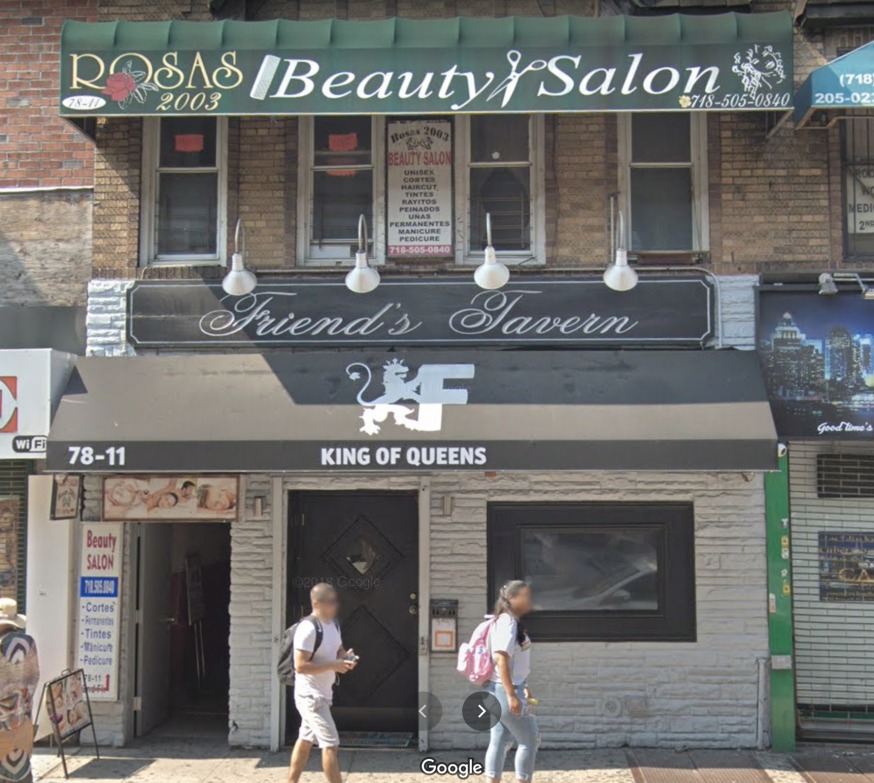
Friend’s Tavern owner Eddie Valentine celebrates the purchase of the building with Queens officials and representatives of TD Bank (Courtesy of Anat)
Nov. 24, 2021 By Allie Griffin
The owner of “Queens’ oldest gay bar” has purchased the Jackson Heights building that the bar is housed in.
Eddie Valentine, who owns Friend’s Tavern, recently acquired the building — located at 78-11 Roosevelt Ave. — effectively ensuring the 32-year-old bar’s future for years to come.
Vallentine said he hopes that Friend’s Tavern will continue to serve the LGBTQ+ community for another 30-plus years.
“For three decades our space has been a refuge for our LGBTQ community, not only from the U.S., but from so many countries around the world,” he said. “We look forward to the next thirty years of creating friendships, and giving our love back to our wonderful community!”
Valentine was able to buy the building, for an undisclosed amount, after securing a mortgage from TD Bank. He was helped along the way by Assembly Member Catalina Cruz, who connected him with the Queens Chamber of Commerce, who then introduced Valentine to TD Bank representatives.
The building also houses a beauty salon.

Friends Tavern, located at 78-11 Roosevelt Ave. (Google Maps)
Valentine, Cruz, TD Bank representatives and other local officials celebrated the purchase with a rainbow ribbon-cutting ceremony Monday.
“I am thrilled to be celebrating our permanent acquisition of Friend’s Tavern, after over 32 years of business here in Jackson Heights, Queens, which is the melting pot of the world,” Valentine said. “It has been our privilege to serve this neighborhood as well as so many customers from the rest of the city who seek a second home, and a safe space where we serve smiles and hugs with every libation.”
Cruz said she was honored to have helped Friends Tavern secure its permanence in Jackson Heights.
“For 32 years, Friend’s Tavern, the oldest gay bar in Queens, has served as a cultural mecca, a home and haven to those without, and a beacon of hope and love for the LGBTQI community,” she said. “I am honored and thrilled to have been a part of the purchase of the building by Friends Tavern owner, Eddie Valentin, and his team, so that we can give this cultural institution a permanent home.”
Queens Chamber of Commerce President and CEO Tom Grech, Assembly Member Jessica González-Rojas, Council Member-elect Shekar Krishnan and Council Member-elect Lynn Schulman also attended the ribbon-cutting celebration.
Grech said he is delighted that Friend’s Tavern was able to secure its future in Jackson Heights and that the Chamber was able to be a part of it.
“Iconic establishments like Friend’s Tavern make Queens special — they add to the unique character of our neighborhoods and create jobs and opportunities for all,” Grech said.
Schulman, who is one of Queens’ incoming queer council members, called the building purchase wonderful news.
“Friend’s Tavern is a historic cornerstone of the LGBTQ community in Queens,” she said. “For decades, when our community had few choices for socializing in public, Friend’s Tavern was always a welcoming safe space.”






